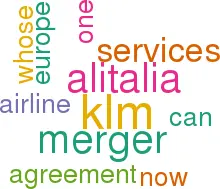Impasse for Euro-mergers
October 2000


The KLM/BA deal did not go through, which is very unfortunate for KLM whose share price subsequently collapsed. But it was the outcome we pointed to in the conclusion to our recent KLM Briefing (July 2000).
It is clear that BA for the moment is not willing to contemplate giving up Bermuda 2 for an open skies agreement with the US. And this attitude in effect precludes any merger between BA and a European carrier that operates intercontinental services. The US authorities will not agree to any merged airline that tries to operate one part of its services under a liberal agreement and other bits under a restricted agreement.
For BA the ending of the talks with KLM probably has come as a relief. It can now concentrate on tackling its core problem — the deep unprofitability of its intra–European services. Under Rod Eddington, one can expect BA to adopt a very pragmatic approach, eschewing grand strategies. This means culling intrinsically loss–making routes, rationalising the unwieldy franchise network and deciding what to do with go. BA has created a lower cost carrier that is competing with its parent and cannibalising traffic; the only solution now might be to sell it off and realise a capital gain.
KLM has yet again failed to consummate a merger, and now it looks as if it has run out of possibilities.
KLM’s extensive hub operation is vital to feed its joint transatlantic services with Northwest, but the low yields that this system produces are not commensurate with its cost structure. The only way that KLM can see to get its unit costs down through economies of scale as the result of a merger or a virtual merger.
There is one airline in Europe with a large passenger base which is also desperately looking for a partner. Unfortunately that airline is Alitalia, callously discarded by KLM a few months ago. Recent financial results at Alitalia (a net loss of $180m in the first half of 2000) tend to confirm KLM’s decision, but just possibly the Dutch are having a few regrets about that abrupt move.
Is then resurgent Air France is possible purchaser? The problem is that Schiphol and CDG are just too close. Even if the two carriers managed to obtain regulatory approval for a merger, the sheer strength of CDG would undermine the Schiphol operation.
To draw a parallel, Austrian has devalued its main asset — the Vienna hub — by entering the Lufthansa–dominated Star alliance, which has more powerful gateways to eastern Europe at Munich and Frankfurt.
Air France’s attention in Europe seems to be focused on building links with the large Mediterranean carriers — Iberia, whose IPO is still officially slated for later this year, and Alitalia, whose dispute with the EC over Malpensa looks as if it may be coming to a resolution.
SAir is not a likely candidate for investing in Alitalia. Apart from regulatory issues (it already has control of the Italian charter sector), SAir has more than enough problems with its current Qualiflyer partners (see pages 10–13) without buying some more from Alitalia.